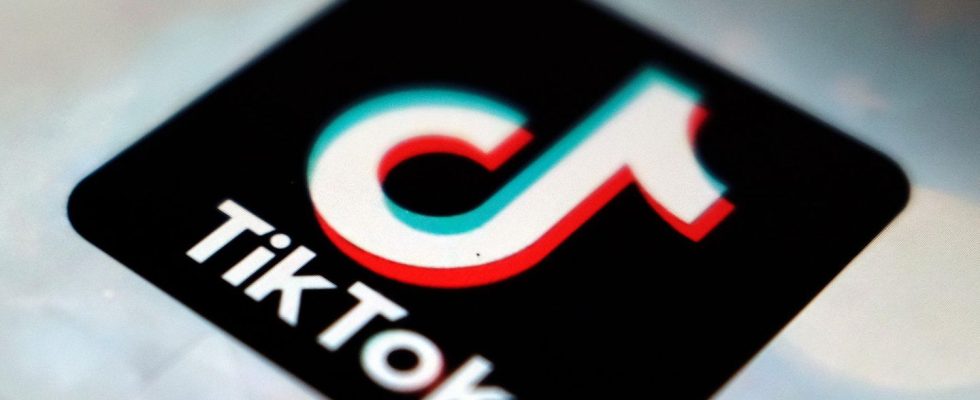With a new law, the US House of Representatives is laying the foundation for the end of Tiktok as we know it. What exactly happens depends on several factors.
It was a bipartisan bang: with an overwhelming majority, the US House of Representatives passed a law that would force Tiktok to be sold or ban the app in the US. Now the big tremors begin – for the company itself, but also for fans worldwide.
The name itself reveals what the law is actually about: “Protecting Americans from Foreign Adversary Controlled Applications Act” is the complicated name, i.e. a law to protect Americans from the influence of apps that are controlled by government opponents. Because: Tiktok, by far the fastest-growing social media app, comes from China. And this has been causing US politics a headache for years.
Tiktok law: ban is not the goal
There is one main concern: Tiktok collects an enormous amount of data, even compared to other social networks that are not exactly reserved. So what if the Chinese government forced the operator Bytedance to hand over the vast amounts of data about its users to the secret services? Tiktok has been emphasizing for several years that US users’ data is not processed in China, but the company does not seem to have the trust of politicians on its side.
This is also shown by the creation of the current law: The submission of the application was unanimously decided by the Committee for Energy and Economics last week – after the 50 participants in the committee had been informed at an intelligence briefing about the dangers posed by apps controlled by enemy states.
Nevertheless, the primary aim is not to block the app completely. “This is not an attempt to ban Tiktok. It is an attempt to make Tiktok better,” emphasized former House Speaker Nancy Pelosi. The calculation: A sale of the US business would make it possible to continue operating the app, but exclude the risk of Chinese influence.

Who should buy Tiktok?
But that could be complicated in more ways than one. With almost 170 million US users, the app reaches almost half of the American population, so the potential is correspondingly great. But that’s not necessarily an advantage in a possible sale: Tiktok’s value is estimated at a good $100 billion. However, this severely limits the circle of possible buyers. However, the size of the user base could weigh on the realistic candidates.
Only tech giants like Amazon, Microsoft, Google or Meta have the combination of financial size and know-how that would make a takeover possible. But if they also wanted to swallow Tiktok, that would quickly trigger monopoly concerns among the antitrust authorities.
Bobby Kotick, who is controversial in Silicon Valley, is said to have brought another variant into play. According to a report in the Wall Street Journal, he is currently looking for investors for an individual takeover. According to the report, OpenAI boss Sam Altman, among others, spoke about it. Kotick knows his way around takeovers: as CEO, he organized Microsoft’s takeover of gaming giant Activision Blizzard before leaving the company. Whether he could shoulder a takeover alone is another matter.
Whether a sale would also have consequences for users in Germany depends primarily on the implementation. If the US TikTok were to be split off from the app used in the rest of the world, a gigantic amount of content and content creators would suddenly disappear. On the other hand, operating the two variants in a compatible manner would probably be so complex that the two companies would hardly bother with it.
One hurdle is still missing
However, the sale is not yet certain: After confirmation by the House of Representatives, the law now has to be passed in the Senate. The vote in the House of Representatives is seen as a clear signal. With 352 yes and only 65 no voters, the law on the boundaries of the otherwise conflicting parties was passed with an overwhelming majority.
If the Senate also agrees, the law would probably be fixed: President Joe Biden has already announced that he will sign it if approved and thus bring it into force.
Concern about freedom of speech
However, there is still resistance. Above all, the risk of a ban if the sale fails is seen as a cause for concern. Numerous Tiktokers had warned their MPs that a ban would result in their income being lost. There are also fears that freedom of speech will be restricted. “The aim here is to deprive 170 million Americans of their vote,” explained a Tiktok spokesman.
As with consent, concern crosses party lines. Freedom of speech is viewed as a valuable asset by both Republicans and Democrats. “We cannot give the president the power to decide what happens on our smartphones,” said Republican MP Thomas Massie, explaining his rejection of the proposal during the hearing. Democratic MP Sydney Kamlager-Dove also echoed the sentiment, speaking of using the law “as a weapon.”
One of the most surprising contradictions came from, of all people, Donald Trump. During his presidency, he worked on getting Tiktok broken up. Now he is behind the service. “Getting rid of Tiktok only helps Facebook and sugar jewelry,” he commented on his own service Truth Social last week. “I don’t want Facebook to get better after they cheated in the last election. They are the real enemy of the citizens.” However, the post had no noticeable impact on the vote in the House of Representatives.
Sources: Washington Post, CNN, Wall Street Journal, The Verge, Truth Social

